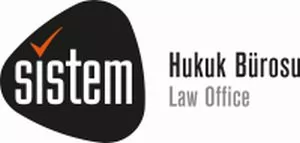A) LEGAL BASIS
The liabilities of the directors of Joint Stock Companies (JSCs) are regulated under article 553 of the Turkish Commercial Code No. 6102 ('TCC').
Above all, it is essential to point out that according to TCC article 553;
"The members of Board of Directors(BoD) may only be liable against to company, to shareholders or to the creditors of the company if they damage the company by failing to perform their duties arising from articles of association and law with their fault."
As it can be clearly seen from this article in order to BoD members to be liable for their duties, , two conditions shall exist together. First, the BoD member shall fail to perform with his/her duties, second this failure shall be arisen from their fault.
The second important point on this issue that need to be emphasized is that BoD members have two authorities which are management authority and representation authority. These two authorities shall be separated to be able to understand the difference and the results of failing these authorities.
B) MANAGEMENT AUTHORITY OF BOARD OF DIRECTORS
BoD members have management and representation rights in JSCs. BoD members are fully responsible and authorized to adopt and execute all decisions related to management that are not within the responsibility and authority of the general assembly according to the law and the articles of association. BoD members and other persons that are responsible for the management of the company are obliged to perform their duties with diligence and to protect the interests of the company within the framework of the principal of good faith.
BoD members have a duty of loyalty which includes safekeeping of Company secrets and protecting Company interests.
Although TCC allows that BoD authority may be selectively transferred to the scope of the General Assembly(GA) through means of stipulations included in the Articles of Association; the exceptions of this rule are the nontransferable and compulsory duties of BoD set out in the article 375 of TCC. Nontransferable and compulsory duties according to the TCC are as follows:
- Top-level management of the company and giving instructions in this regard,
- Determination of the company's management organization,
- Establishment of the necessary system for financial planning to the extent required, and for accounting and finance audit.
- Appointment and dismissal of managers and persons performing the same function and authorized signatories.
- High-level supervision of whether the persons in charge of management act in accordance with the law, articles of association, internal regulations and written instructions of the BoD.
- Keeping the share book, resolution book of the board and the GA meeting and discussion register, preparation of the annual report and corporate governance disclosure and submission thereof to the GA, organization of GA meetings, and enforcement of GA resolutions.
- Notifying the court regarding the company's state of excess of liabilities over assets.
In conclusion, as soon as BoD members perform their duties with diligence and to protect the interests of the company within the framework of the principal of good faith, they would not be liable from the damages which occur because of their commercial decision. The TCC and other applicable laws are designed on the knowledge that making loss is as normal as making profit in business world.
C) THE AUTHORITY OF REPRESENTATION OF THE COMPANY OF BoD
BoD members who have authority to represent the company can have limitations placed on their powers determined by a BoD resolution on delegation on representation rights. In order to be valid, this resolution shall be registered at the Trade Registry Office and announced at Turkish Trade Registry Gazette. By registering such a delegation of representation authority document, it is possible to restrict some of the BoD member's representation rights and delegate some of the duties to other employees of the Company, such as daily transactions of company with small amounts. In this case, all the employees and BoD members who represent the company will be responsible from their own acts. It is again important to point out that employees and BoD members will not be responsible from their signature unless they have obvious fault or they intentionally damage the company and/or they make decisions/put their signature to documents to make profit for their selves or third parties.
D) THE LIABILITY OF BoD ON PUBLIC DEBTS
The liability on public debts which cannot be covered by the company itself; the BoD members of Joint Stock Companies are directly responsible with their own assets for public debts which cannot/may not be collected from the company. In other words, BoD Members are personally liable for public debts (tax, social security payments and other debts) without considering whether they have fault or not. This liability is applied pursuant to the Tax Procedure Code ("TPC") and Code of Procedure of Collection of Public Receivables ("CPCPR").
Pursuant to Article 10 of the TPC and repetitive Article 35 of the Law On The Procedure For The Collection Of Public Receivables numbered 6183 (the "Law"), which constitute provisions governing the personal liability of statutory representatives for tax liability of Joint Stock Companies, if public receivables may not be fully or partially collected, or if such receivables appear to be uncollectible from the assets of the legal entity, they shall be collected from the personal assets of the BoD members of the legal entity.
CONCLUSION
Considering the aforementioned information, BoD members are not responsible from their business decisions such as determination of the price of the contract, bidding to a tender unless the loss occurs a result of obvious fault of them. However, it should be kept in mind that the BoD members are personally liable for the public debts of the Company if the government cannot collect the public debts from the company itself.
The content of this article is intended to provide a general guide to the subject matter. Specialist advice should be sought about your specific circumstances.


